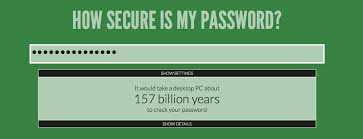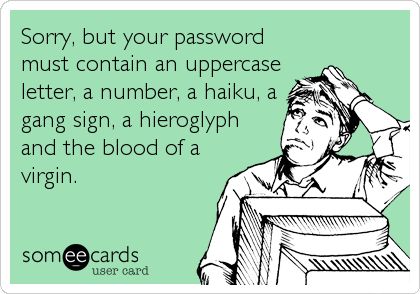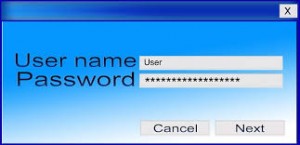 Facebook has added USB key security to it’s two-factor authentication options. Previously, Facebook users could add the additional security of two-factor authentication to their account by using the Facebook app to receive a six digit one-time passcode, or by having the code sent to their smart phone via SMS text message. Facebook now supports the open-source Universal 2 Factor (U2F) standard established by the FIDO Alliance, such as the Yubikey from Yubico.
Facebook has added USB key security to it’s two-factor authentication options. Previously, Facebook users could add the additional security of two-factor authentication to their account by using the Facebook app to receive a six digit one-time passcode, or by having the code sent to their smart phone via SMS text message. Facebook now supports the open-source Universal 2 Factor (U2F) standard established by the FIDO Alliance, such as the Yubikey from Yubico.
FEB

 NIST is working on
NIST is working on  Passwords are not dead – not yet. But they are on life support. They are no longer enough to truly secure anything on their own.
Passwords are not dead – not yet. But they are on life support. They are no longer enough to truly secure anything on their own. Most corporate password policies are a waste off time and do not add anything extra to providing secure authentication. Many of these policies were put in place to meet the standards of various compliance bodies (PCI-DSS, HIPAA, etc.) But basically these policies are not keeping up with the state of the art in password cracking, as we discussed last November in our post on ...
Most corporate password policies are a waste off time and do not add anything extra to providing secure authentication. Many of these policies were put in place to meet the standards of various compliance bodies (PCI-DSS, HIPAA, etc.) But basically these policies are not keeping up with the state of the art in password cracking, as we discussed last November in our post on ... The site Adult Friend Finder, the “world’s largest sex and swingers site” recently exposed 412 million user credentials due to poor, or in some cases, non-existent password hashing practices. The biggest group losses were:
The site Adult Friend Finder, the “world’s largest sex and swingers site” recently exposed 412 million user credentials due to poor, or in some cases, non-existent password hashing practices. The biggest group losses were: The answer to this question is complicated, but not impossible to understand. The first thing to know is that most passwords are not cracked by guessing, or trying thousands of possibilities one at a time on a typical login screen. Most systems will lock the account after a certain small number of failed attempts, like 5 or 6. This makes the kind of ...
The answer to this question is complicated, but not impossible to understand. The first thing to know is that most passwords are not cracked by guessing, or trying thousands of possibilities one at a time on a typical login screen. Most systems will lock the account after a certain small number of failed attempts, like 5 or 6. This makes the kind of ... As we approach year-end, many small and medium sized business owners and managers are coming to the realization that their best intentions for creating a cybersecurity program in their organization have fallen short. This was the year, you promised yourself, that we get a handle on computer and network security.
As we approach year-end, many small and medium sized business owners and managers are coming to the realization that their best intentions for creating a cybersecurity program in their organization have fallen short. This was the year, you promised yourself, that we get a handle on computer and network security. On Monday we looked at the some of the primary attack vectors used by cyber-criminals. Here are the rest of the attack vectors that Kevin Thompson from FireEye shared at the Cyber Security Summit. Many of these are significant twists on old exploits, or more sophisticated exploits.
On Monday we looked at the some of the primary attack vectors used by cyber-criminals. Here are the rest of the attack vectors that Kevin Thompson from FireEye shared at the Cyber Security Summit. Many of these are significant twists on old exploits, or more sophisticated exploits. October is National Cyber Security Awareness Month. This was released by US-CERT, and I thought it was worth posting.
October is National Cyber Security Awareness Month. This was released by US-CERT, and I thought it was worth posting.